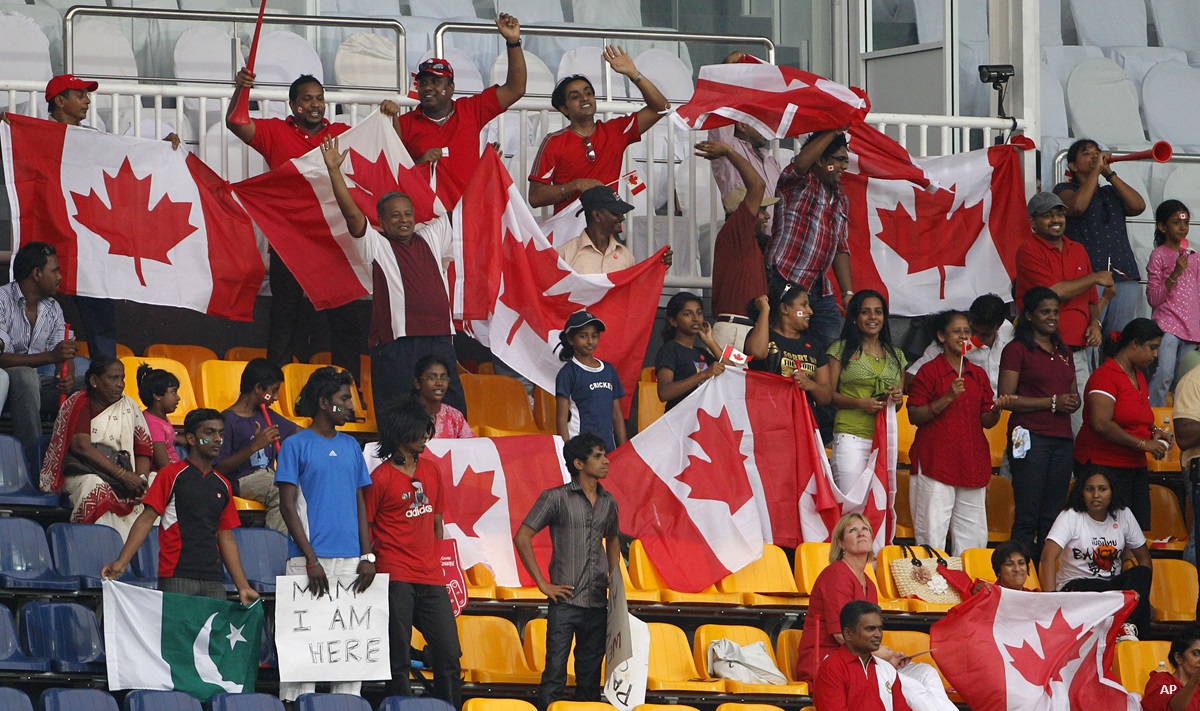Cricket
3 Stocks for Cricket’s T20 World Cup

It’s nearly time for the 2024 ICC Men’s T20 Cricket World Cup. Cricket’s major global event, to be hosted in the U.S. and the Caribbean from June 01- 29, will feature 55 matches played among 20 countries, including first-time participants such as Canada and the U.S.
For those unfamiliar with T20 cricket, it’s the shortest and fastest format of the game, designed to favour batters and ensure maximum entertainment. This version features a flurry of powerful shots, with batters frequently hitting “sixes,” which are the cricket equivalent of home runs in baseball.
The month-long cricket extravaganza will spotlight the Canadian men’s cricket team’s debut at the global championship. For those eager to catch the excitement of the sport’s grand festival, consider the stocks of these key sponsors of the T20 Cricket World Cup and strategic partners of Cricket Canada.
TD Bank Group TD
Analyst: Michael Miller, CFA
One of Canada’s two largest banks, Toronto-Dominion TD operates three business segments: Canadian retail banking, U.S. retail banking, and wholesale banking. The bank also has a 13% ownership stake in Charles Schwab.
TD Bank and Cricket Canada recently announced a landmark partnership to support the growth and development of cricket in Canada. As part of the deal, the TD logo will be prominently displayed on the official kits and training gear of the men’s national team’s highly anticipated debut at the upcoming 2024 T20 Cricket World Cup.
“This is an opportunity for us to join the community and cricketers of all ages in their passion and enthusiasm for the game and help Cricket Canada create more milestones together,” says Tyrrell Schmidt, chief marketing officer at TD.
Canada accounts for approximately 55% of the bank’s revenue while 35% comes from the U.S. “Toronto-Dominion has done an admirable job of focusing on its Canadian retail operations and growing into number-one or -two market share for most key products in this segment,” says a Morningstar equity report.
The lender’s wide economic moat is underpinned by cost advantages and switching costs evidenced by “its solid funding base, leading share in the Canadian banking market, moaty nonbank businesses, and the ability to primarily operate in the favourable Canadian banking environment,” asserts Morningstar equity analyst Michael Miller, who recently reduced the stock’s fair value to $90 per share from $92, prompted by an assumption of $1 billion in losses from the anti-money laundering issues.
Coca-Cola KO
Analyst: Dan Su, CFA
U.S. soda maker Coca-Cola KO is the world’s largest non-alcoholic beverage company, with 200 brands across several categories including carbonated soft drinks, water, sports, energy, juice, and coffee. The firm generates around two-thirds of its total revenue overseas, the bulk of which comes from emerging economies in Latin America and Asia-Pacific.
In addition to being the official key sponsor of the T20 Cricket World Cup, the cola giant has also tied up with Cricket Canada as its beverage sponsor.
“Cricket is experiencing exponential growth in Canada—both in players and in the fanbase,” says Laura Cutsey, VP marketing and partnerships, Coca-Cola. “Globally, we’ve already seen success with cricket partnerships, having recently renewed our global partnership with the International Cricket Council (ICC) until 2031.”
As a beverage behemoth, Coke has recently bolstered its offerings in categories such as coffee and sports drinks with strategic acquisitions of strong challengers (Costa and BodyArmor, respectively). “Geographical diversification offers another avenue of growth,” says a Morningstar equity report.
The soft drinks major is well positioned to benefit as per capita beverage consumption in emerging markets (US$144 in Asia-Pacific, US$190 in Latin America) is still growing and remains well below the US$1100 level seen in North America.
“We expect Coke to blend global best practices in brand and research investment with local culture and taste preference to speed up growth in these regions,” contends Morningstar equity analyst Dan Su, who puts the wide-moat stock’s fair value at US$60.
Nissan Motor NSANY
Analyst: Vincent Sun, CFA
Japanese auto giant Nissan NSANY sold 3.3 million vehicles (6.5 million vehicles as the Renault-Nissan-Mitsubishi alliance group) in 2022, making the group the fourth-largest vehicle seller in the world. Nissan owns 15% of Renault and a 34% stake in Mitsubishi Motors.
The automaker recently announced its official partnership with Cricket Canada and its national men’s and women’s teams.
“Nissan has been proud supporters of cricket on a global level for many years, and we’re thrilled to expand the wonderful relationship with Cricket Canada and our national teams,” says Ken Hearn, director of marketing for Nissan Canada.
The automaker’s recent performance had been less than stellar but is now improving. “Nissan has reduced overhead and re-established its product strategy, pursuing profit over volume,” says a Morningstar equity report.
The firm’s turnaround progress has been marred by industry challenges including the Russia-Ukraine conflict, chip shortages, COVID-19 lockdowns, and increased costs from raw materials, energy, logistics, and inflation.
“Even so, Nissan emerges on the other side of its turnaround a leaner organization, working in closer collaboration with alliance partner Renault,” says Morningstar equity analyst Vincent Sun, who puts the stock’s fair value at US$14.4 per ADR.
Despite being one of the largest mass-market brands, Nissan has lacked significant pricing power. Moreover, the onslaught of EV rivals and “competitors in emerging economies like China and India pose a real threat of taking market share in Europe and the US,” Sun cautions.


)






